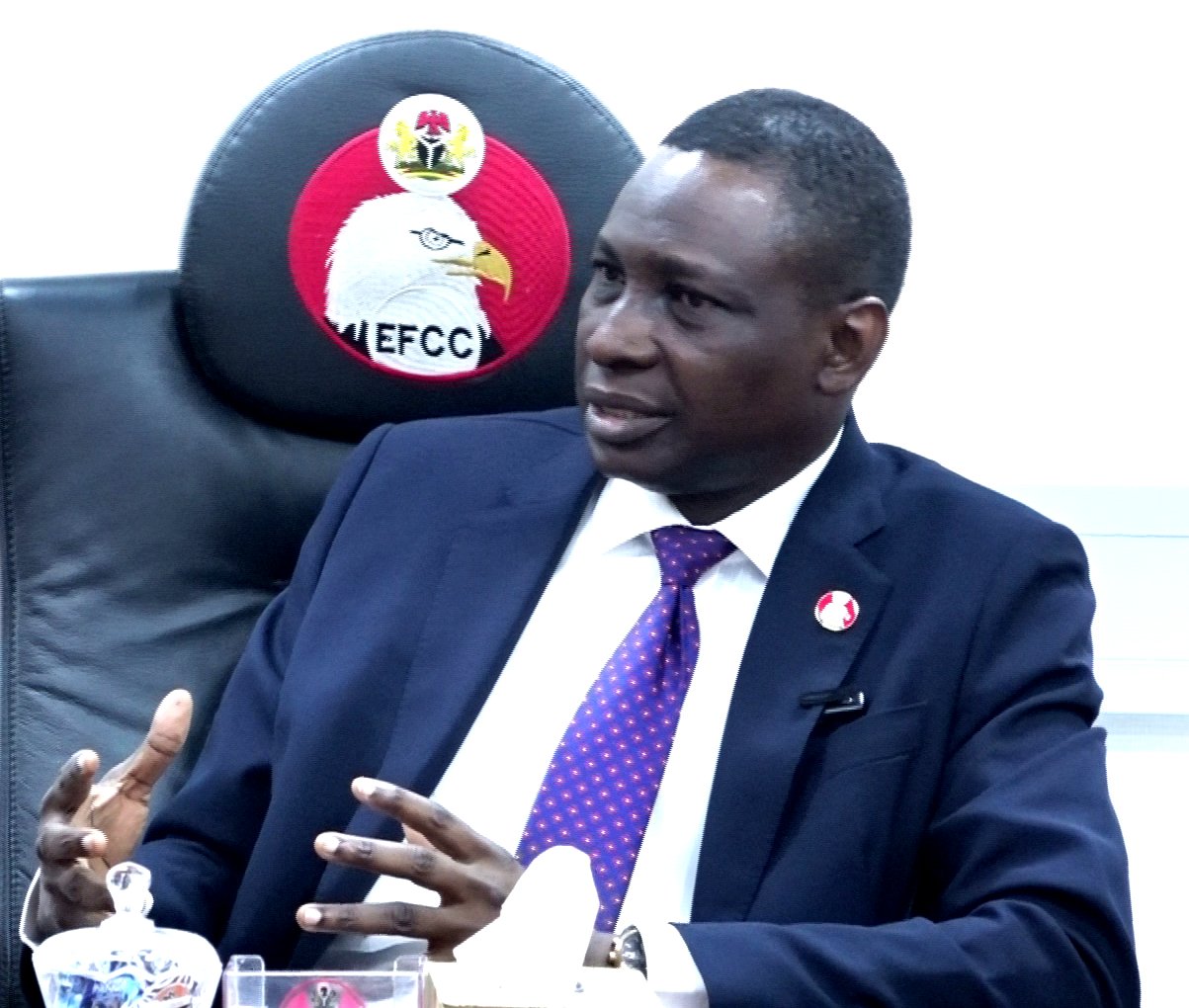
The Economic and Financial Crimes Commission (EFCC) has issued a strong warning about the growing use of virtual assets and fraudulent investment platforms to launder stolen public funds and defraud unsuspecting Nigerians.
Speaking at a public engagement in Lagos to mark Africa Anti-Corruption Day, the Executive Chairman of the EFCC, Mr. Ola Olukoyede, described the rise in cryptocurrency-related fraud and fake investment schemes as a major emerging threat to Nigeria’s anti-corruption war.
Olukoyede’s remarks were delivered on his behalf by Mr. Ahmed Ghali, Acting Zonal Director of the EFCC’s Lagos Zonal Directorate 2, at the event held at the Commission’s office on Okotie Eboh Street, Ikoyi.
“Fraudulent politicians are already perfecting schemes and hiding their loot in cryptocurrencies to evade the investigative dragnet of anti-corruption agencies,” the Chairman warned.
According to him, “Stolen funds and unexplained wealth are being warehoused in wallets.”
Olukoyede called for frank dialogue among stakeholders, stressing that the path forward lies in public education, tech-driven enforcement, and early detection.
“Virtual assets and investment fraud, like other fraudulent activities, are preventable. The escape route is adequate knowledge and understanding,” he said.
He clarified that while virtual assets such as cryptocurrencies and digital tokens are not inherently illegal, their misuse is increasingly enabling illicit financial flows across the continent.
He highlighted the EFCC’s proactive efforts in dismantling such schemes.
“We are ahead in every material sense, and there are enormous proofs of operational successes—especially the breakthrough in the investigation and prosecution of the infamous CBEX scam,” he stated.
Olukoyede also urged members of the public to take greater responsibility through due diligence and timely reporting of suspicious transactions. He noted that many scams thrive because of investor negligence and delays in notifying law enforcement.
“No investment scam can succeed without the negligence of investors. People hardly alert the EFCC until they have already been defrauded,” he said.
The interactive session featured technical presentations by two senior EFCC officials—ACE I Abbah Sambo, Head of the Advance Fee Fraud (AFF) Section, and CSE Alex Ogbole, Head of the Commission’s Digital Forensic Laboratory in Lagos.
The officers shed light on how fraudsters exploit digital finance platforms, the challenges of tracing illicit assets, and the cutting-edge tools the EFCC is deploying to detect and investigate such crimes.
Participants were urged to deepen their understanding of virtual assets and the structure of Ponzi-style schemes, which are spreading rapidly across Africa and targeting desperate and vulnerable investors.
The session ended with a collective call to action for financial experts, regulators, and everyday Nigerians to close the “window of ignorance” that scammers continue to exploit.








